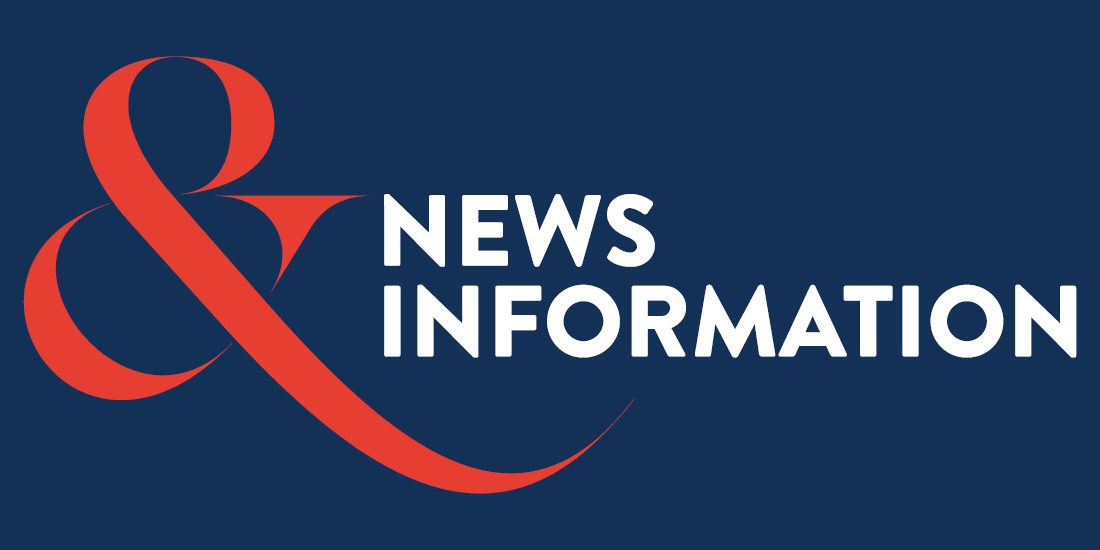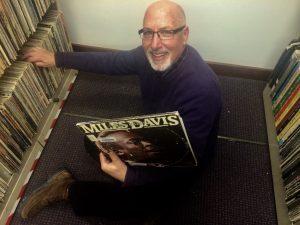Meet the media: David Ranii
- January 10, 2018
- Author: Mike Trainor
- Category: Business, Communication, Meet the media, Public Relations

After spending nearly 25 years with the News & Observer, David Ranii’s name (and work) is familiar to just about anyone involved in the Triangle business community. From having a front-row seat to the unprecedented growth our region has experienced, to covering some of the most influential business stories of the past quarter-century, David is able to offer a unique perspective about the growth of the regional economy, as well as the rapid and continued evolution of the media landscape.
David retired from the News & Observer back in July. Now that he’s retired, we can say (without risking the appearance of “brown-nosing” a reporter) that David is the type of journalist PR professionals hope get assigned to cover their clients. He is widely regarded in PR circles as being fair, accurate, thorough and knowledgeable. Our staff even referred to him as “old school” at times, and we meant that in the most positive way possible. In the current frenzied and fast-paced world of journalism, we (and our clients) always knew that David would take the time to do his research, provide the proper context, and get the story right…the first time.
We enjoyed catching up with David recently.

Can you give us a snapshot of your career?
My career as a journalist encompassed more than 40 years, including 24-plus years at The News & Observer in Raleigh, where I was a business reporter until I retired in July. I got my start at a tiny paper in Upstate New York — The Evening Sun in Norwich — and also was a reporter at The National Law Journal and The Pittsburgh Press. I also spent 18 months on “the dark side” — working in public relations for Daniel Edelman Public Relations in Chicago.
I actually pursued a career in my chosen course of study. I have a bachelor’s degree in journalism (and psychology as well) from Syracuse University and a master’s degree in journalism from American University. The best journalism course I ever took was at American, where my fellow students and I fanned out on Capitol Hill once a week to cover press conferences, congressional hearings, and other events, then returned to campus and filed a story on deadline. The next day you often got to see how your story compared to those in The Washington Post and The Washington Star. It was a humbling, but instructive, experience.
Could you compare working in public relations to being a journalist?
The required skill sets are the same but the mindset is oh so different, and that just didn’t work for me. I knew PR wasn’t for me when I saw colleagues who got as pumped up about successes they scored on behalf of their clients as I had when I wrote a front-page story, while I just couldn’t get that psyched about landing a story for a client.
Is there a story that you’re most proud of?
Overall, I’m most proud of the coverage I provided of the region’s startups through the years. It was incredibly gratifying to write about a company like Cree or Quintiles when they were starting out and then chronicle their stratospheric growth. As an aside, for nearly a quarter-century I’ve heard Triangle entrepreneurs talk about this area becoming “the next Silicon Valley.” Alas, that will never happen because the money — that is, the venture capital — is entrenched on the West Coast. But there’s absolutely nothing wrong with being the one and only RTP — which has become an impressive startup hub.
As for a particular story, it’s one that probably no one else remembers. When I was in the Washington bureau of The National Law Journal in the early 1980s, I got a call from my editor in New York late on a Friday asking me to write an in-depth, comprehensive report on how enforcement of the antitrust laws had changed under the Reagan administration. The challenge was three-fold: I had never written an antitrust story; I was writing a story that would be read by the nation’s top antitrust attorneys; and my deadline was just a week away. So I spent the weekend at the Library of Congress boning up on antitrust law, on Monday I started interviewing experts in antitrust law, and on Wednesday afternoon I interviewed William F. Baxter, who headed the antitrust division at the Justice Department. It certainly wasn’t the best story I ever wrote, but I’m proud that it covered the waterfront just fine — and that I proved to myself how quick a study I could be.
You have been a firsthand witness to the population explosion in the Raleigh area. What do you think has made this such an attractive area for people and businesses to relocate to?
First and foremost, the region’s big three universities — Duke, N.C. State and UNC — are huge draws for the IT companies that are most attracted to the Triangle. But I do believe geography plays a major role as well. In the early 1980s I covered the startup scene in Pittsburgh, a town that is blessed with two major research universities — Carnegie-Mellon University and the University of Pittsburgh. But the Pittsburgh area, because of the weather and its image as a dirty steel town, found if extremely difficult to attract businesses looking to relocate. North Carolina, however, has an abundance of sunshine and a great image. People — and companies — are looking for excuses to move here.
How did the job of a journalist change over the course of your career?
The internet age has made it easy to provide instant context, which was extremely difficult before that. There was a time when, if I wanted to find out what the latest quarterly results were for a major publicly traded company — say, a General Motors or a Boeing — it required telephoning the company and asking for their numbers. Now, in addition to getting that info immediately, you can also quickly determine what’s been happening to the company’s stock over the past years — and why — any management changes, controversies, etc. None of that was readily available decades ago.
How can PR professionals be a better resource to the media? Any PR pet peeves?
Do your homework. I’d receive pitches all the time from outside PR counsel who assumed I’d never heard of the company they were pitching — even though I had written multiple stories about the business.
Know the basics. When I did get a pitch about a company I wasn’t familiar with, I’d always want to know data points — employees, revenue growth, etc. Often the person at the other end of the phone didn’t know any of this info.
Any advice to a student or young professional looking to break into the journalism field?
Don’t go into journalism unless you can’t imagine yourself doing anything else. Because the field is shrinking, compensation is shrinking, influence is shrinking. Don’t get me wrong. I loved my career. But the profession I entered in 1974 wasn’t anything like it is today.
What does your post-News & Observer life look like?
I’m doing some freelance writing and I joined the board of my favorite local theater company, Burning Coal Theatre. I’m taking weekly hikes with a buddy of mine and doing plenty of reading and listening to jazz. And, more recently, I’m doing the sound design for Burning Coal’s next play, “The Normal Heart,” a powerful play about the early days of the AIDS crisis that is being directed by my daughter. And here comes the shameless plug — the play runs from Jan. 18 through Feb. 4.
